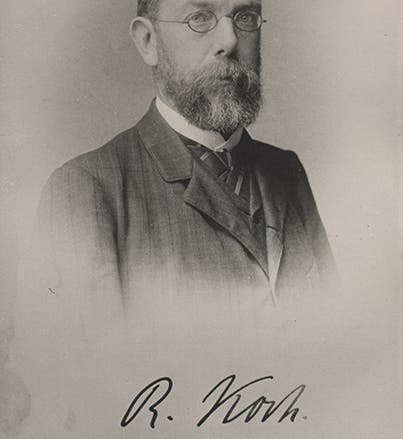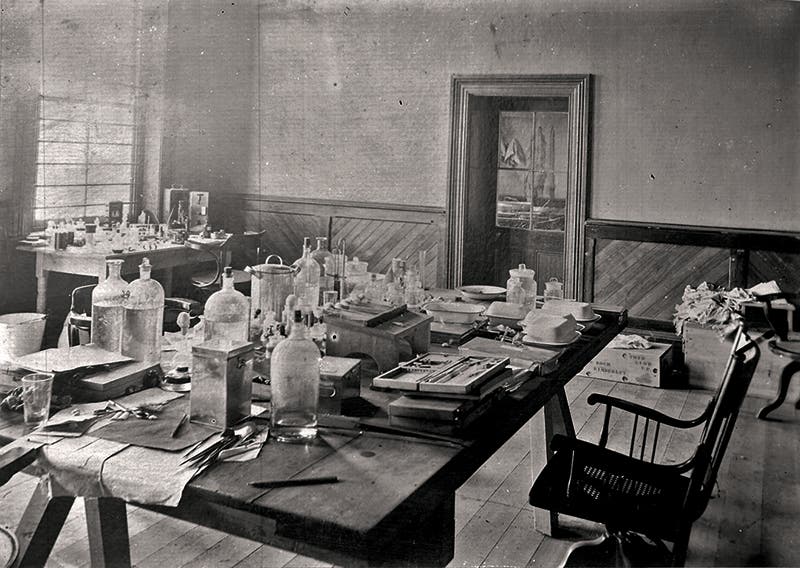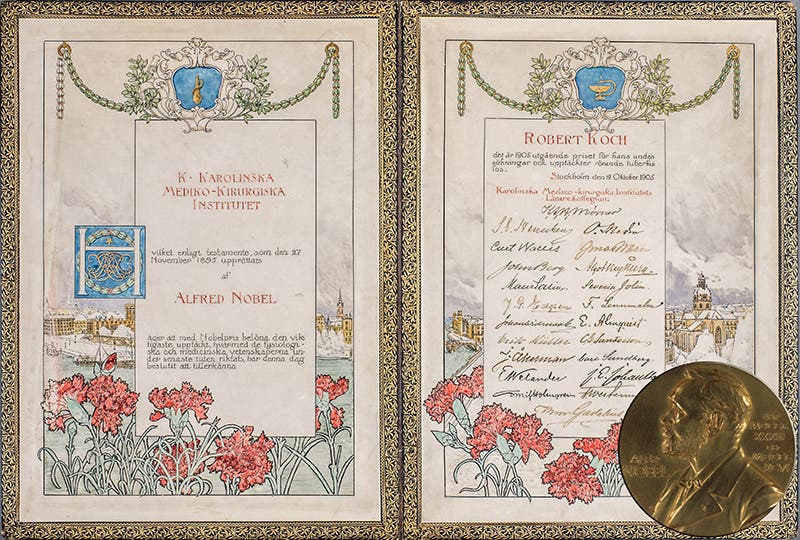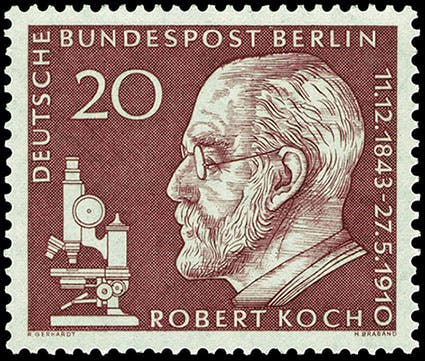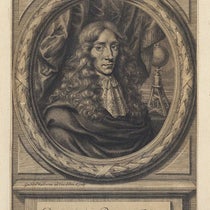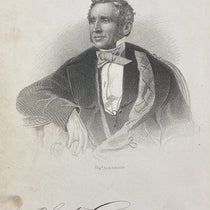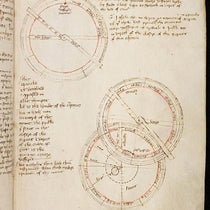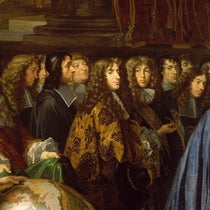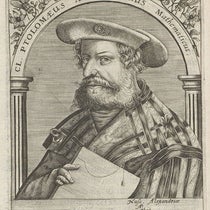Scientist of the Day - Robert Koch
Robert Koch, a German microbiologist, was born Dec. 11, 1843. In the 1860s, Louis Pasteur had proposed what would come to be called the germ theory of disease – that many diseases are caused by microorganisms, especially bacteria. Koch, more than anyone, demonstrated the truth of the germ theory of disease by finding the specific bacteria that cause several common diseases. In 1876, he showed that anthrax, a disease that affects both humans and farm animals, is caused by a bacteria called Bacillus anthracis that he was able to isolate in the lab, and then demonstrate that it is the cause of the disease by infecting other animals with the bacteria. He also showed that Bacillus anthracis produces spores that can lie dormant for decades in the soil while retaining their virulence.
Koch then tackled that scourge of all human diseases in the 19th century, tuberculosis, which caused roughly 15% of all deaths among the population of Europe each year. In 1882, he announced that TB is also caused by a bacterium, Mycobacterium tuberculosis, and he was able to demonstrate that infection with the tubercule bacillus produces the disease. This was a tougher nut than anthrax, for it is harder to culture the tubercule pathogen in the lab. It certainly helped that Fannie Hesse, who invented the agar medium, now standard in bacteria culture, and Julius Petri, who invented the Petri dish, both worked in Koch's lab in Berlin.
And then, in 1884, Koch announced that he had isolated the microorganism that causes cholera, Vibrio cholerae. As it turns out, an Italian scientist, Filippo Pacini, had discovered the bacteria thirty years earlier. But no one outside of Italy knew this until the 20th century. As the discoverer of the bacterial cause of anthrax and TB, and co-discoverer of the cholera bacterium, Koch was truly one of founders of bacteriology. For the discovery of the cause of TB, Koch received the Nobel Prize in Physiology/Medicine in 1905.
Koch is also well known to medical students for having formulated Koch's postulates, which state that you know a bacterium causes a particular disease if and only if : 1) the bacteria is always present when the disease is present, 2) bacteria from a diseased organism can be cultured through several generations, 3) the cultured bacteria will cause infection of the disease, and 4) the disease so caused will yield more examples of the bacteria which can be re-cultured. Although there are now known exceptions to most of these postulates, they are still good rules to follow in attempting to determine the cause of a particular disease.
After his death, the Royal Prussian Institute for Infectious Diseases, which Koch founded and directed, was renamed the Robert Koch Institute. There is a large marble statue of Koch in Berlin, in what is known as Robert Koch Platz (fourth image), erected in 1916. He was also honored with a commemorative postage stamp in 1960, on the 50th anniversary of his death (fifth image).
Dr. William B. Ashworth, Jr., Consultant for the History of Science, Linda Hall Library and Associate Professor emeritus, Department of History, University of Missouri-Kansas City. Comments or corrections are welcome; please direct to ashworthw@umkc.edu.

